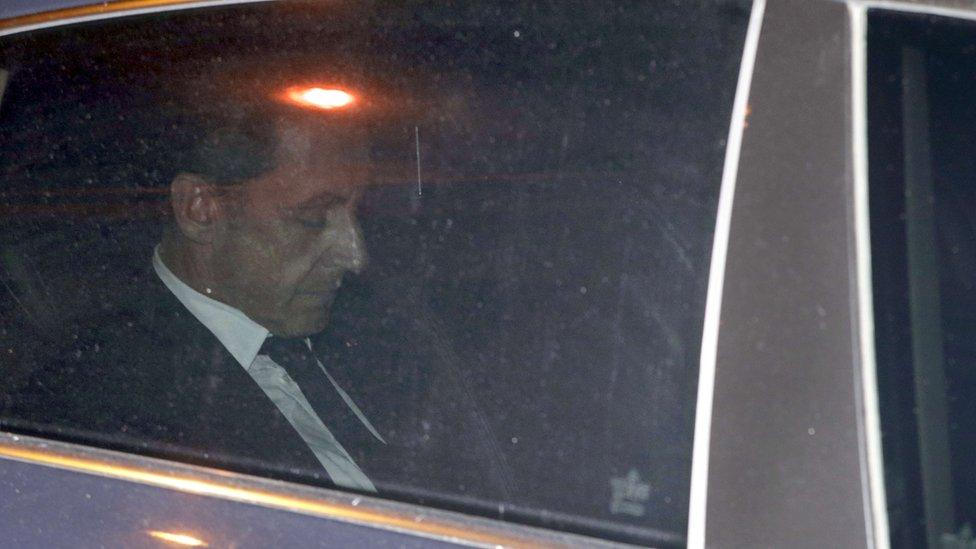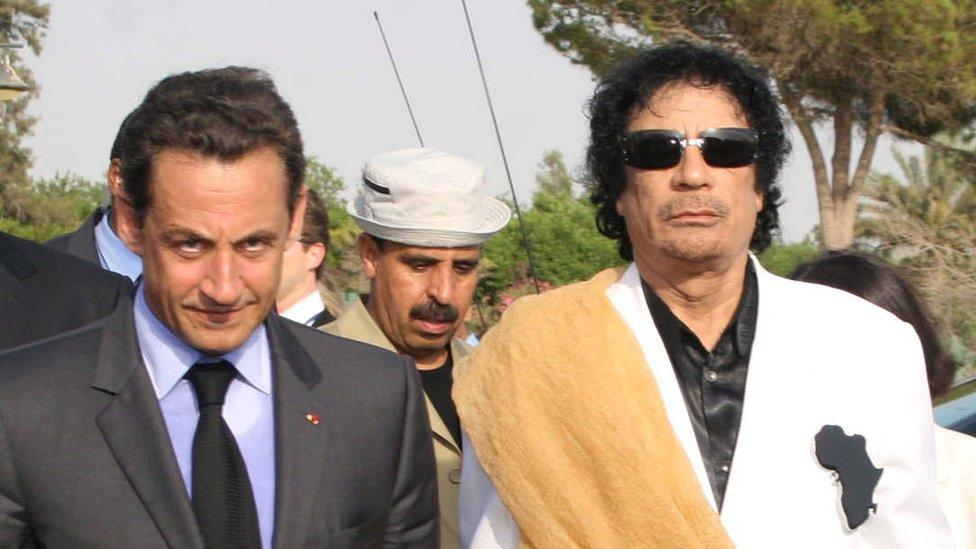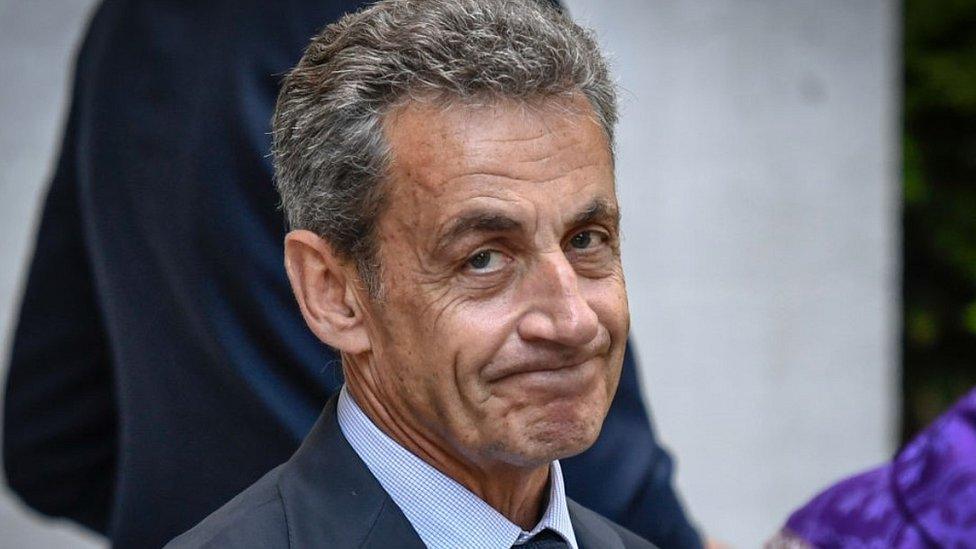Nicolas Sarkozy: A patchwork of ex-president's legal woes
- Published

Mr Sarkozy became the first ex-president of France to be detained in police custody
Former French president Nicolas Sarkozy's political ambitions have been overshadowed by investigations since he left the Elysee Palace in 2012.
In the latest development, he is to face trial on charges of corruption and abuse of power for allegedly seeking to influence a judge who was looking into suspected illegal financing of his election campaign.
In separate investigations he has also been accused of receiving campaign funding from the late Libyan leader Muammar Gaddafi and is to face trial for allegedly overspending campaign limits in 2012. He denies any wrongdoing.

What is the latest development?
The case for which Mr Sarkozy now faces trial centres around wiretapped phone calls in which he allegedly discussed the idea of offering a prestigious role in Monaco to a high-ranking judge in exchange for information on a financing investigation.
Prosecutors say Mr Sarkozy's lawyer, Thierry Herzog, tried to obtain information from the judge, Gilbert Azibert, about the investigation centred on alleged illicit payments from L'Oreal heiress Liliane Bettencourt to help Mr Sarkozy win the 2007 election. Mr Sarkozy was later cleared of taking any such funds.
The case surfaced in 2014 and Mr Sarkozy became the first former French head of state to be held in police custody before being formally placed under investigation.
He is expected to stand trial along with Mr Herzog and Mr Azibert. They all deny any wrongdoing

What is the Gaddafi case about?
In March 2018, Mr Sarkozy was questioned in police custody over long-standing claims that he received illicit funding from Col Gaddafi for his 2007 election campaign.
French-Lebanese businessman Ziad Takieddine has previously told the French news website Mediapart that in 2006-07 he handed over three suitcases stuffed with cash to Mr Sarkozy and Claude Guéant, who was his chief of staff.

Mr Sarkozy clinched trade deals for France with Libya's Gaddafi in 2007
Mr Takieddine alleged that the cash came from Gaddafi and totalled €5m (£4.4m; $6.2m).
Mr Guéant, who was managing Mr Sarkozy's presidential campaign at the time, told the franceinfo website that he had "never seen a penny of Libyan financing".
Mr Sarkozy also denies any wrongdoing and says some former Gaddafi regime officials want revenge for his decision to send French warplanes during the 2011 Libyan uprising.

What else is Mr Sarkozy accused of?
The other case for which Mr Sarkozy has been told to stand trial is known as the Bygmalion affair and centres on claims that Mr Sarkozy's party, then known as the UMP, worked with a friendly PR company to hide the true cost of his 2012 presidential election campaign.
France sets a €22.5m (£19m; $24m) limit on campaign spending, and it is alleged the firm Bygmalion provided a series of false invoices for €18m to Mr Sarkozy's party rather than the campaign. Investigators say that the false accounting enabled the party to spend well over the limit.

Mr Sarkozy himself is accused of knowingly exceeding the spending limit by setting up campaign rallies even though he had been warned of the risk. He is appealing against the order to stand trial.
Employees at Bygmalion have admitted knowledge of the ruse and Mr Sarkozy is among 14 people caught up in the affair to face trial. The other suspects include ex-UMP colleague Eric Cesari, campaign heads Guillaume Lambert and Jerome Lavrilleux as well as Bygmalion staff.
As well as illegal campaign financing, the accusations involve forgery, abuse of trust, fraud, and complicity in illegal financing.
Mr Sarkozy lost the 2012 race and failed in his bid to run again in the 2017 presidential election.

What has Mr Sarkozy said?
Mr Sarkozy wrote about the Bygmalion scandal in a book published in 2015.
"It will no doubt be hard to believe, but I swear it is the strict truth: I knew nothing about this company until the scandal broke," he said.
Regarding claims of influence peddling, he has firmly denied doing anything "contrary to the values of the republic or the rule of law".
He has spoken of "political interference", suggesting that the judges who had ordered that he be questioned in custody had an "intention to humiliate".
- Published8 January
